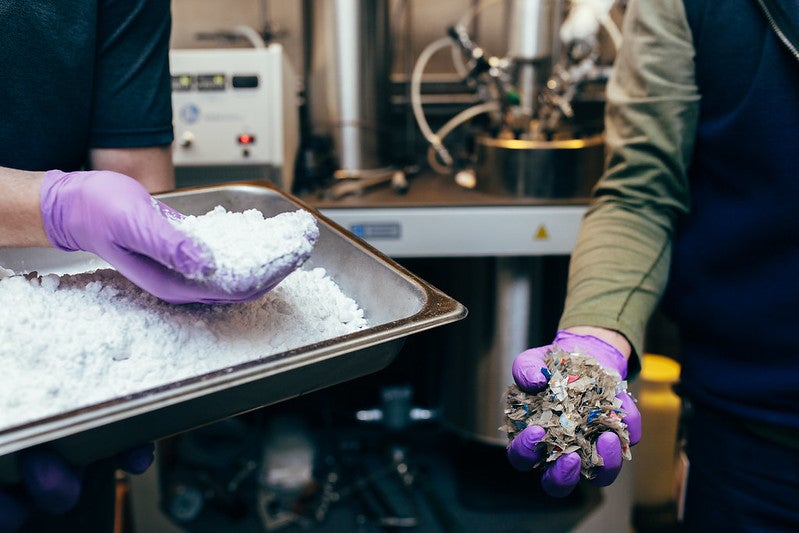
BP has developed a technology that can recycle polyethene terephthalate (PET), which is a plastic waste that was previously considered unrecyclable.
The new technologyBP Infinia can transform PET waste into new, virgin-quality feedstocks.
The company plans to build a $25m pilot plant before launching the product for full-scale commercialisation.
BP Downstream chief executive Tufan Erginbilgic said: “We see our Infinia technology as a gamechanger for the recycling of PET plastics. It is an important stepping stone in enabling a stronger circular economy in the polyester industry and helping to reduce unmanaged plastic waste.”
The technology can transform difficult-to-recycle PET plastic waste such as black food trays and coloured bottles into recycled feedstocks that are very similar to those produced from conventional hydrocarbon sources.
The recycled feedstocks can be used to make new recyclable PET. This reduces the need for downcycling and diverts plastic waste from landfill and reduces incineration.
BP petrochemicals technology, licensing and business development vice-president Charles Damianides said: “We have long experience and a proven track record of scaling technology and we firmly believe that this innovation can ultimately contribute to making all types of polyester waste infinitely recyclable.”
The new facility will become operational in 2020. It will be located at the company’s research and development hub in Naperville, Illinois.
The technology will prevent billions of PET bottles and trays from being incinerated every year.
PET is the most popular plastic in beverage and rigid food packaging. As much as 27 million tonnes of PET are used around the world every year.



